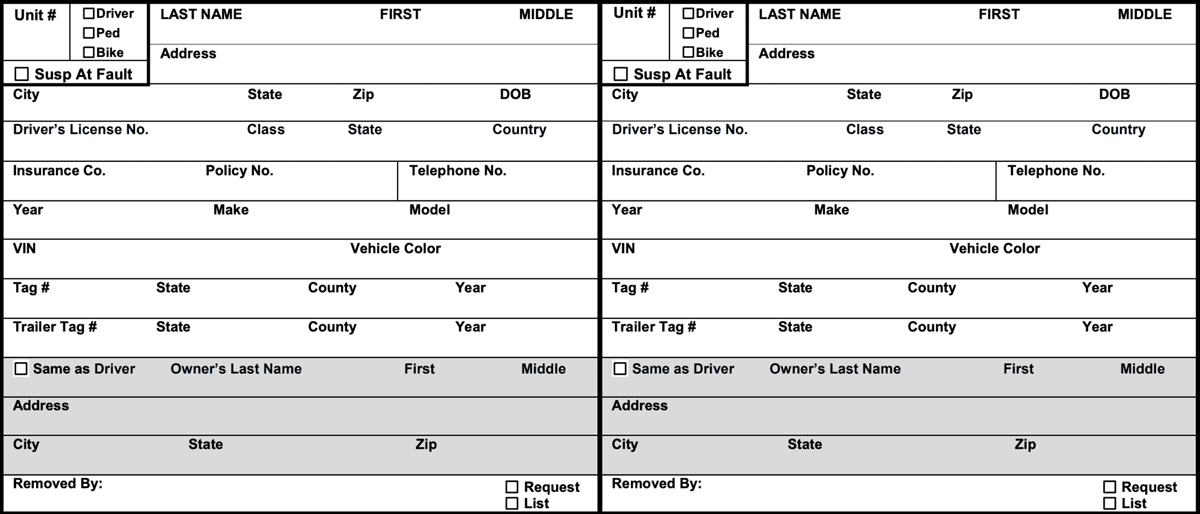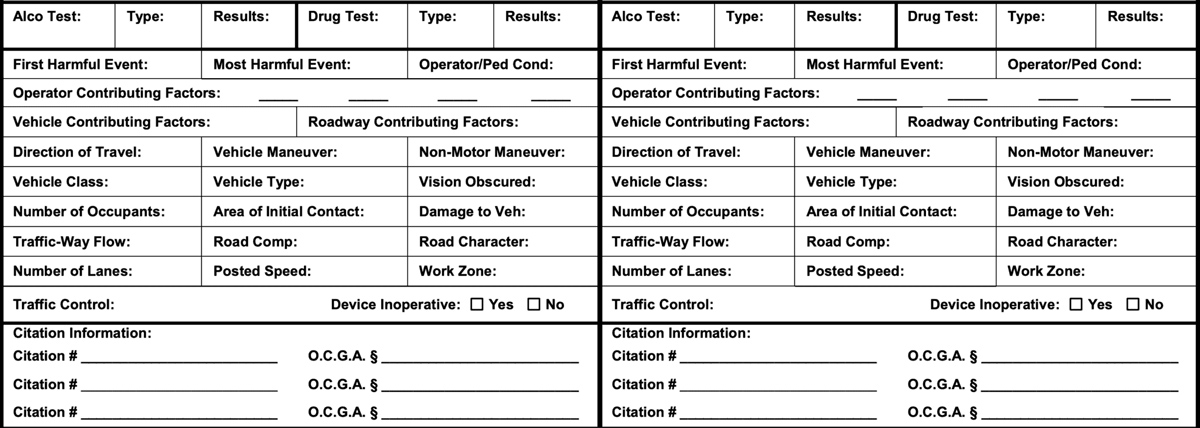Car Accidents 101
Atlanta is the 10th Most Dangerous city for drivers
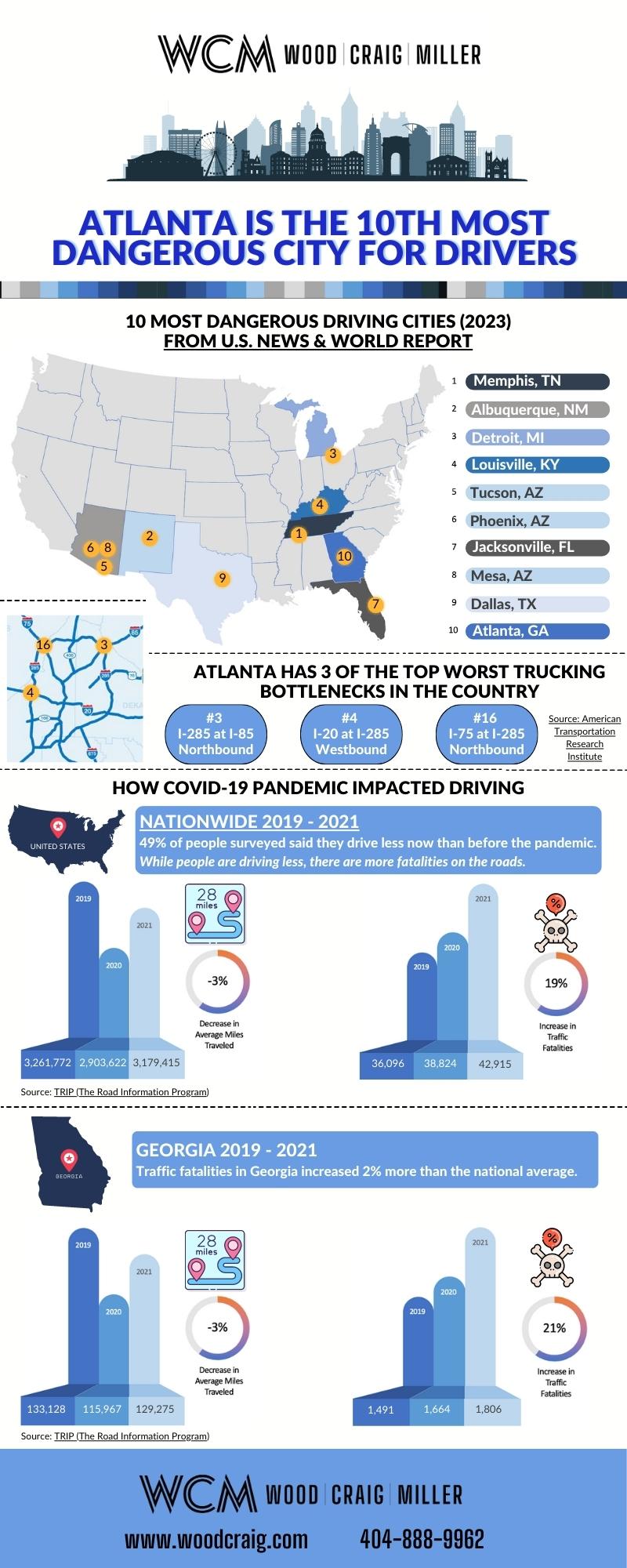
In March 2023, U.S. News and World Report created a list of the most dangerous cities for drivers in the U.S. Not surprisingly, Atlanta, GA was listed as #10. This report was especially interesting as it noted the impact of the COVID-19 global pandemic on driving and safety. Although 49% of those surveyed said that they were driving less than before the pandemic, the number of traffic fatalities increased both across the U.S. AND in Georgia.
The average number of vehicle miles traveled (VMT) by drivers nationwide decreased by 3% between 2019 and 2021. And in the same time period, the number of traffic fatalities increased by 19% across the U.S. and by 21% in Georgia.
TRIP (The Road Information Program), a non-profit, published a report in October 2022, which states that the fatality rate on Georgia’s rural roads are amongst the highest in the nation. Georgia’s fatality rate per 100 million VMT on rural non-Interstate roads is 2.74 (which is 4th in the nation), whereas the rate on all other roads is 1.13. By comparison’s sake, the national rate is 2.17 on rural non-Interstate roads, and 1.09 on all other roads. In 2020, Georgia had 594 fatalities on rural non-Interstate roads.
Rural roads are more likely to have narrow lanes, limited shoulders, sharp curves, exposed hazards, pavement drop-offs, steep slopes and limited clear zones along roadsides. The rural roads are also important since they provide the most direct links in the supply chain from farm to market. 4% of Georgia’s rural roads are in poor condition, and 15% are in mediocre condition. 3% of Georgia’s rural bridges were rated in “poor/structurally deficient condition.”
What do all of these statistics mean? Basically, it’s no surprise that our roads in Atlanta and Georgia as a whole are not the safest, and there’s always a good chance that Georgia drivers will be involved in traffic accidents. It is important for drivers to exercise the most caution so as to minimize their chances of getting into accidents.

Top 10 Tips Following an Accident
Top 10 Tips Following an Accident
While you may not realize it, the actions and statements you make right after an accident, before police arrive, can sometimes win or lose a lawsuit. So, compose yourself and don’t make any of the mistakes described below.
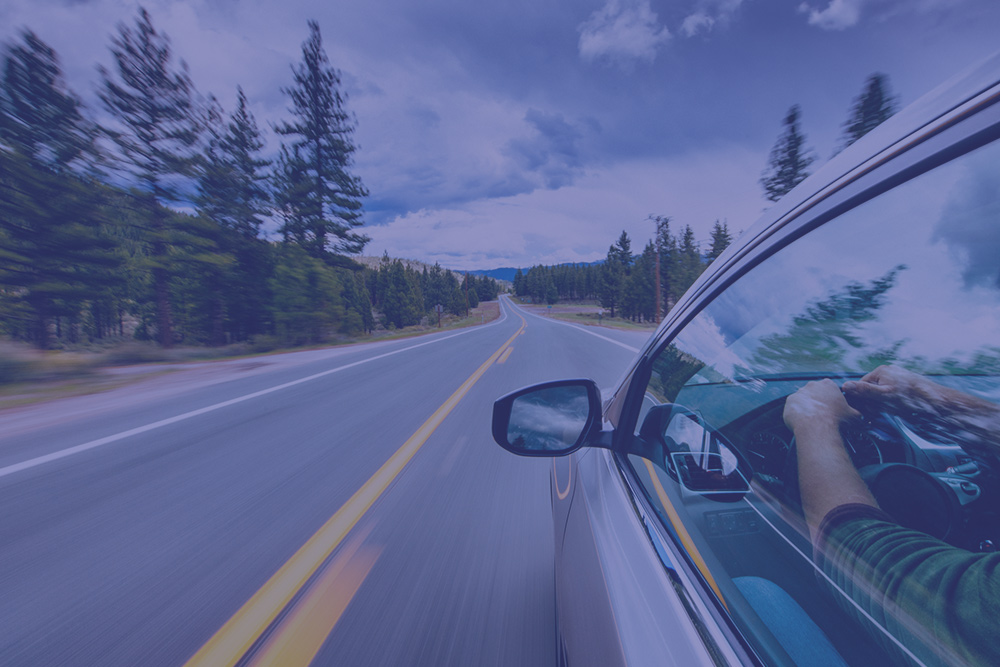
1. Don’t Leave the Scene of the Accident
- Leaving the scene without speaking to the other driver or police is the worst thing to do.
- Doing so will make you appear at fault.
- This may add to any penalties you face, including possible felony charges. This can be seen as a “Hit and Run.”
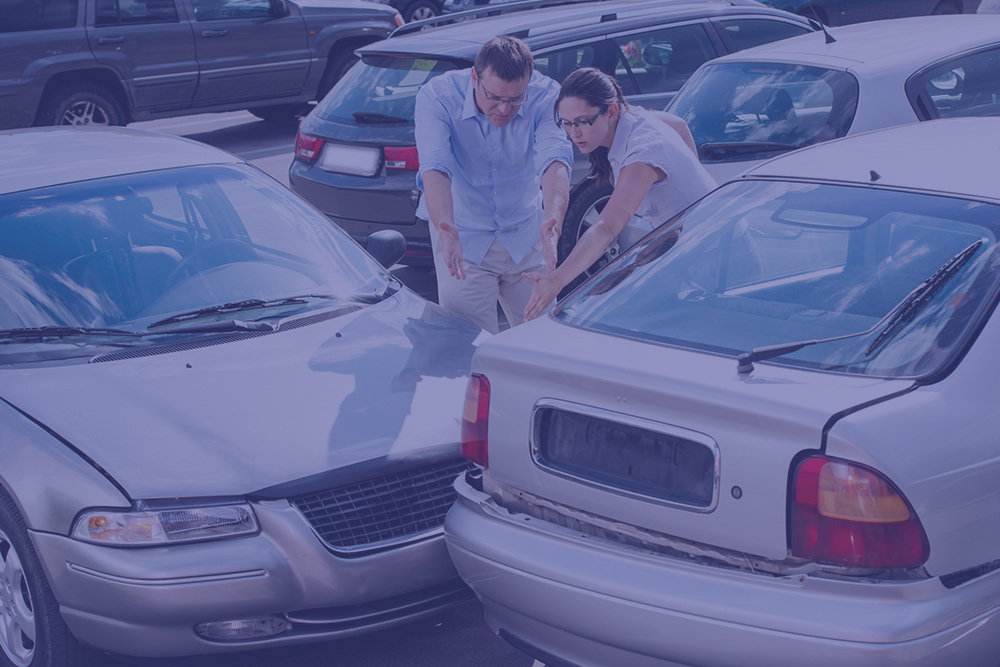
2. Don’t Admit Fault
- Avoid making any statements that could be perceived as an admission of fault.
- Simply saying you’re sorry could be seen as an admission of liability.
- Even if you feel partially at fault, an apology can be interpreted as an admission of liability to the police and the insurance company.
- Just tell the police what happened and leave it at that.
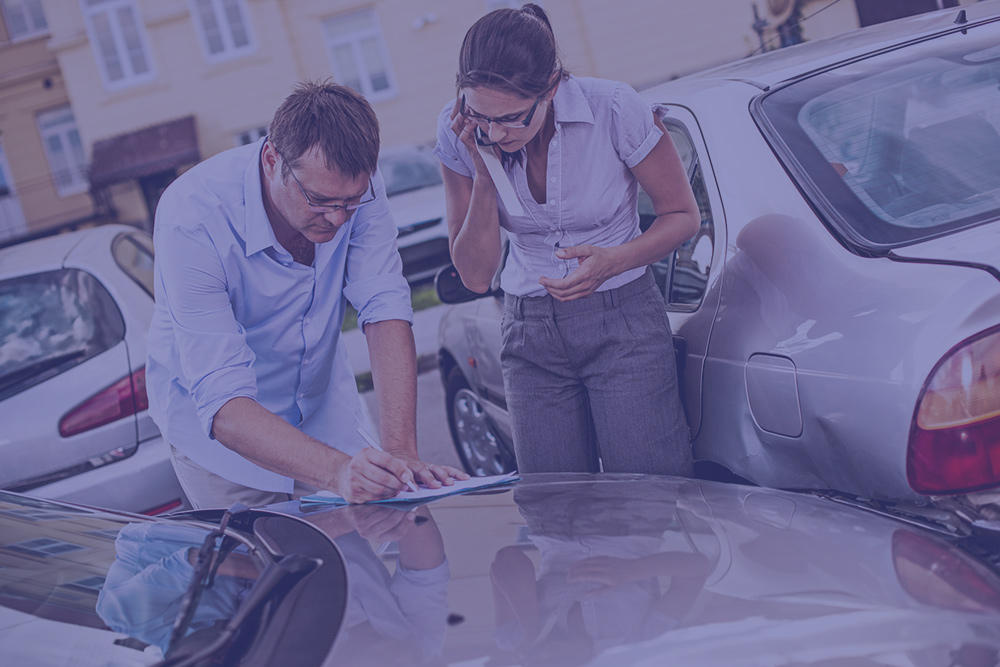
3. Document Everything
- Use your cell phone to take pictures of all vehicles involved, and the accident scene itself.
- Write down as many details as you can on paper or your phone.
- Document the names and contact info of any witnesses.
- Sometimes the smallest details can be the difference between winning and losing your case.
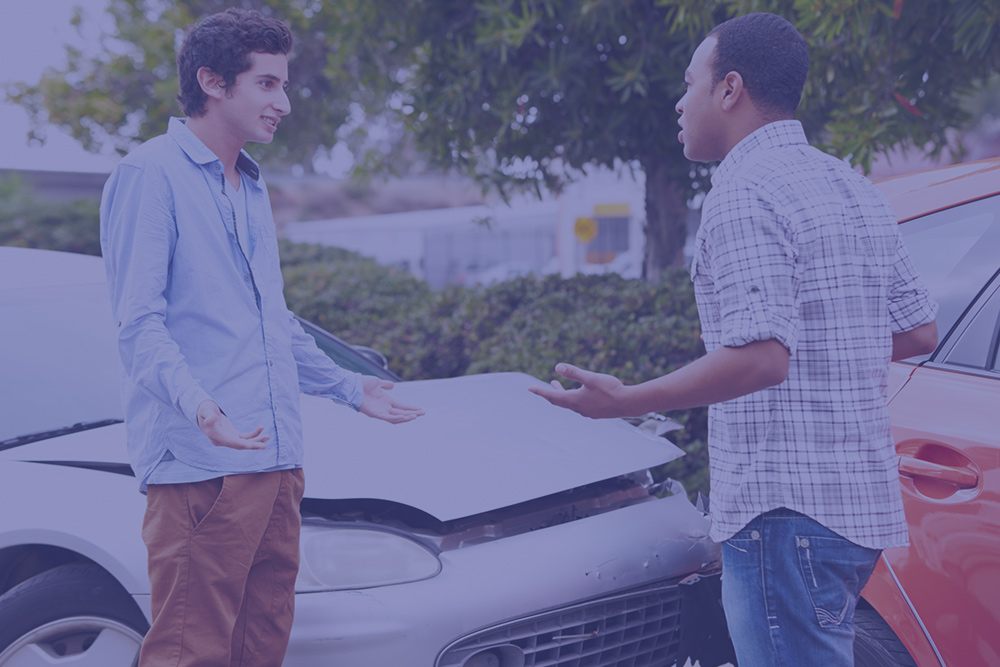
4. Keep Your Cool
- Accidents can make anyone emotional.
- Stay calm and don’t let your emotions lead to verbal or physical altercations that can make things worse.
- If the other driver is agitated, wait for the police to arrive before you discuss the accident.
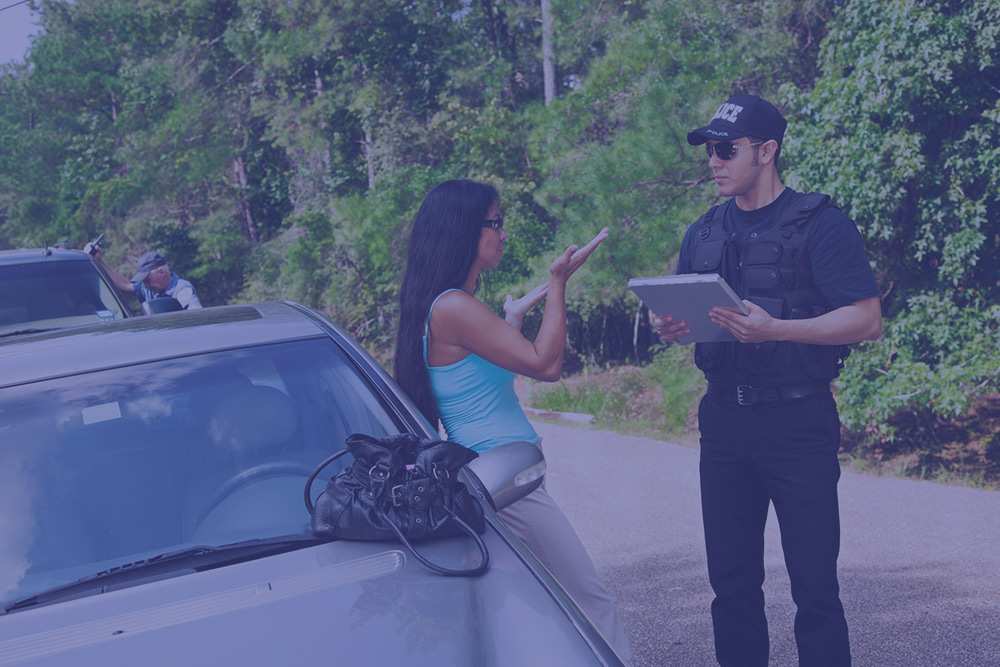
5. Be Respectful to the Police Officer
- Give the police your full attention.
- Turn off your stereo, take off your sunglasses, put your phone down and be courteous. Try to be unemotional.
- Be patient. Sometimes it can take the police a long time to arrive.
- Tell the officer if you think the other driver was drinking or distracted.
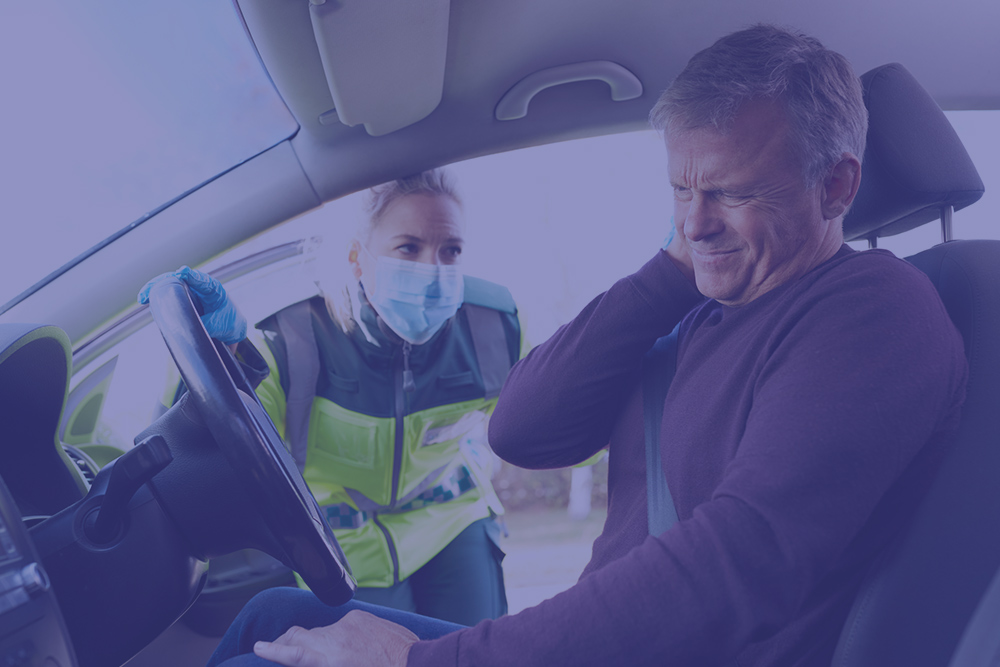
6. Don’t Decline Medical Treatment
- Even if you don’t think you are injured, it’s always smart to be examined by a medical professional soon after an accident.
- Delaying treatment opens the door to claims (by the other side) that you were not seriously hurt.
- Declining treatment altogether can lead to a claim that you were never never hurt, especially if you later discover that you were seriously injured.
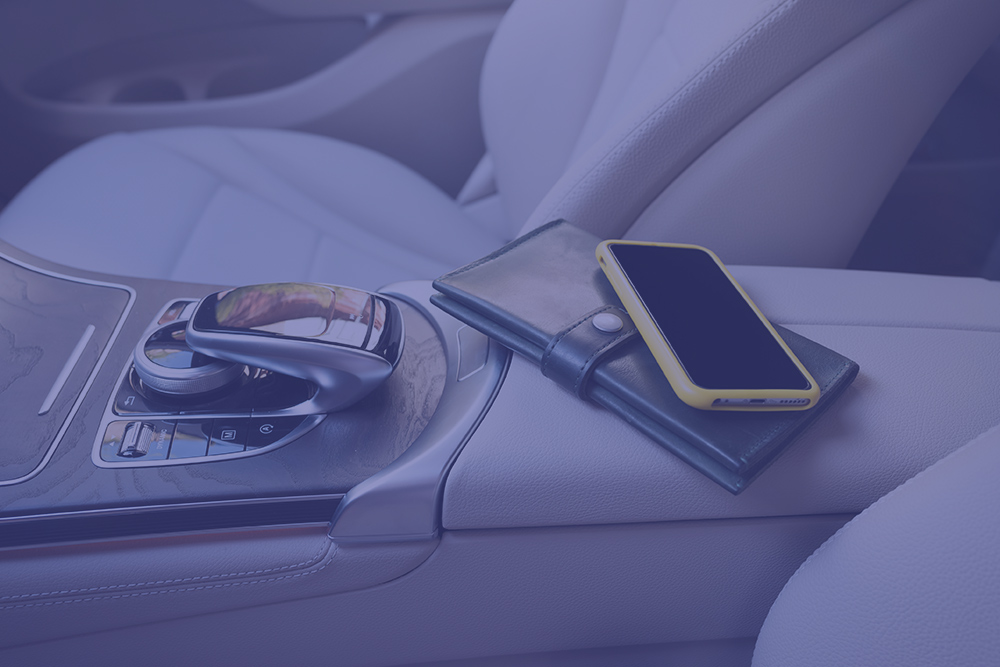
7. Take Your Personal Belongings from Your Car
- If your car is towed or if you are transported by ambulance, be sure to remove valuable possessions from your vehicle.
- If your car is towed, it can be very difficult to return to your car to retrieve your belongings.
- The next time you see your vehicle again might be a long time.

8. Don’t Post about the Accident on Social Media
- Anything you say about your accident on Facebook, Twitter, Instagram or other sites becomes public in your lawsuit.
- Any subsequent posts can be used against you.
- If you claim to be injured then post photos of yourself dancing, you don’t look injured.
- The less you say on social media, the better.
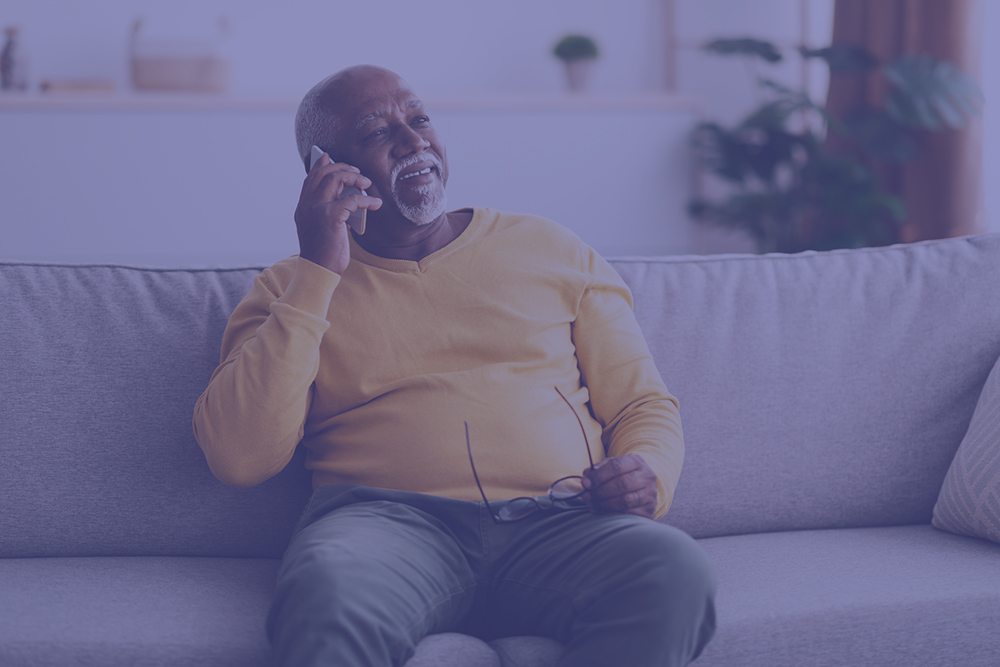
9. Don’t Talk to the Other Party’s Insurance Company Without Your Lawyer
- If possible, don’t speak to the other driver’s insurance company without first consulting a personal injury lawyer.
- Your lawyer can help you craft a statement for the other driver’s insurance company.
- Your lawyer can speak to the car insurance company on your behalf.
- Consulting a lawyer is the best way to protect your rights and avoid having to dispute a denied or undervalued claim.

10. Report the Accident to Your
Insurance Company
- Many people don’t want to report accidents to their insurance company for fear of having their rates go up.
- You need to report your accident to your insurance and file an accident claim to receive coverage.
- Failing to report your accident in a timely manner gives your insurance company legal grounds to deny your claim.
Disclaimer: Be careful you don’t indicate any degree of fault. Be honest about what happened, but keep the details general until you’ve consulted a car accident attorney.
Top 10 Tips Following an Accident
Top 10 Tips Following an Accident
While you may not realize it, the actions and statements you make right after an accident, before police arrive, can sometimes win or lose a lawsuit. So, compose yourself and don’t make any of the mistakes described below.
Disclaimer: Be careful you don’t indicate any degree of fault. Be honest about what happened, but keep the details general until you’ve consulted a car accident attorney.
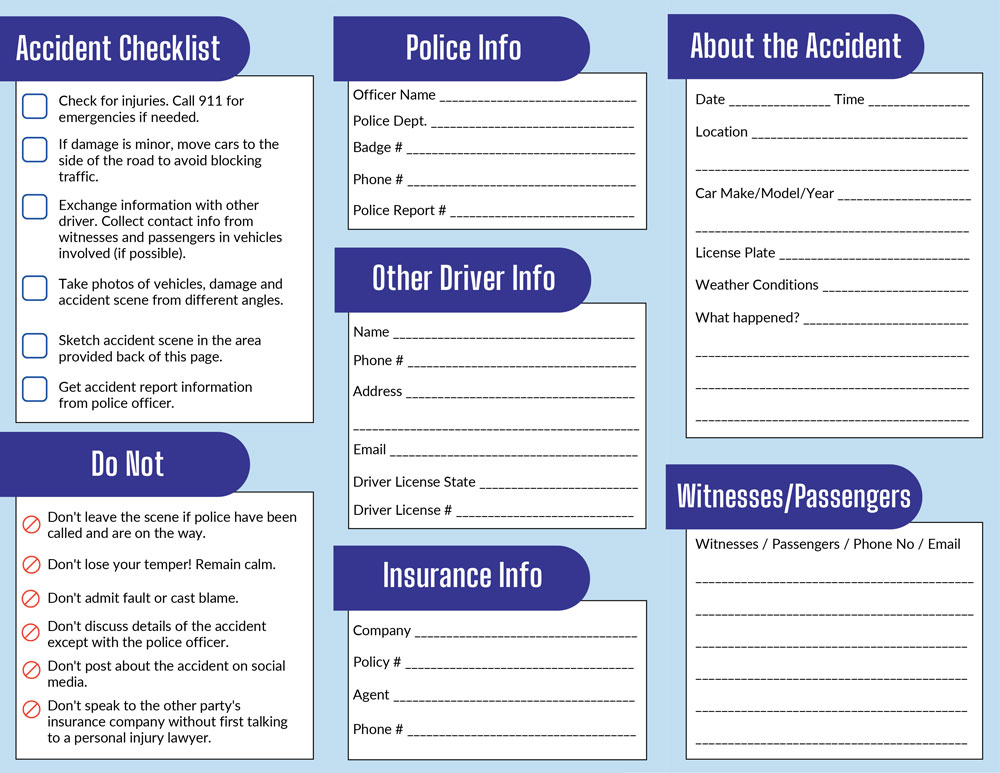
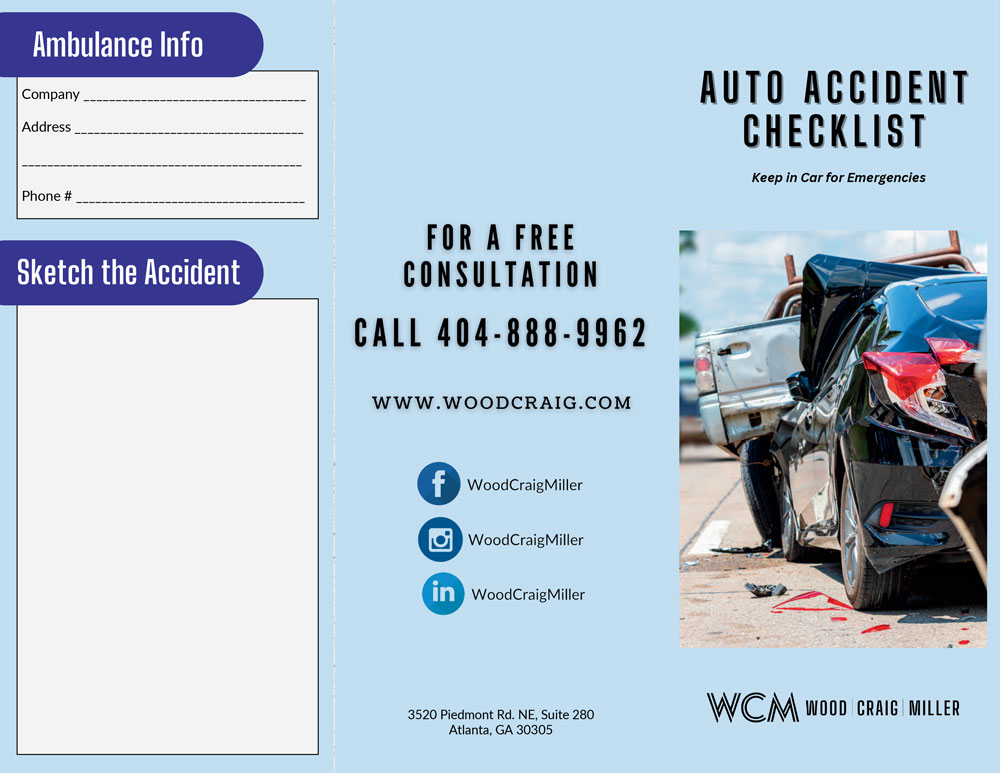
TYPES OF CAR ACCIDENTS


No two car wrecks are the same. They often impact individuals and families differently. Our Georgia car accident attorneys have seen all types of car accidents, and have represented victims of all types.
Some of the most common causes of accidents are:
Aggressive driving
Chain reaction
Distracted driving
DUI and drug related crashes
Failure to yield collisions
Head-on collisions
Highway auto accidents
Hit-and-run crashes
Road rage
Roadside accidents
Sideswipe collisions
Taxicab and rideshare accidents
Teen driver car accidents
Tire blowouts
Less common types of accidents are:
Back over car accidents
Construction site car crashes
Elderly driver car accidents
Fatal car crashes
Manufacturing defect
Multi-vehicle (pile-up) collisions
Pedestrians hit by a car
Reverse car wrecks
Rollover car wrecks
WHY PERSONAL INJURY CASES
SHOULDN'T SETTLE QUICKLY
WHY PERSONAL INJURY CASES
SHOULDN'T SETTLE QUICKLY
1
You don’t know the full extent of your injuries. You could initially feel fine, but some injuries take days or even weeks to fully develop. This means your bills could end up being significantly higher than you first thought.
2
You only get ONE chance to settle. Even if you find out later you were more injured than you realized, once you sign a release and get a check, it’s nearly impossible to go back and get more money. This is why insurance companies want you to settle right away.
3
You might not have all the information. In some cases, it takes time for more information to come to light before a full picture of what happened in a crash is known. Traffic citations or even research into the parties involved can affect the outcome.
HOW TO READ A GEORGIA
ACCIDENT REPORT
At the scene of any accident, the police officer will provide a document which contains an accident report number, and tells you when and how you can obtain a copy of this report.
The report is the roadmap to understanding all the details of a car accident. You will want to provide the accident report number to your personal injury attorney so he or she can obtain the reports. Often, the report contains so much information, it can be overwhelming. Here, we attempt to break it down and can help make sense of your Georgia Uniform Motor Vehicle Accident Report. Also, please see this link, which provides you with an explanation of various codes listed on the report.


